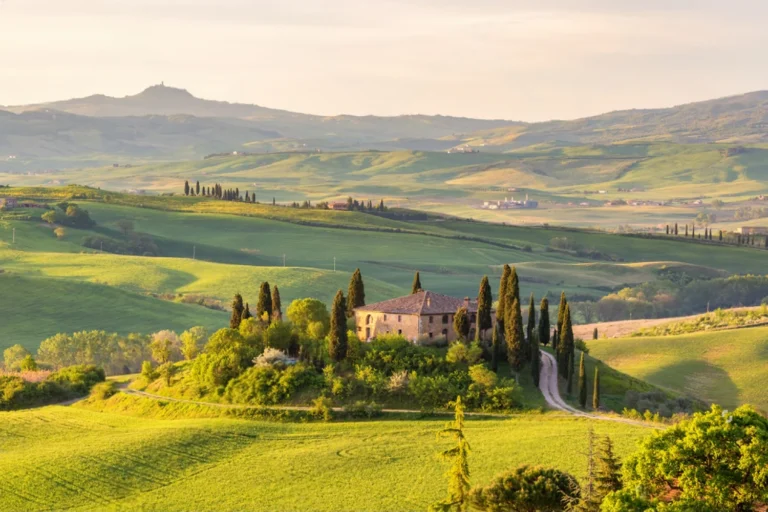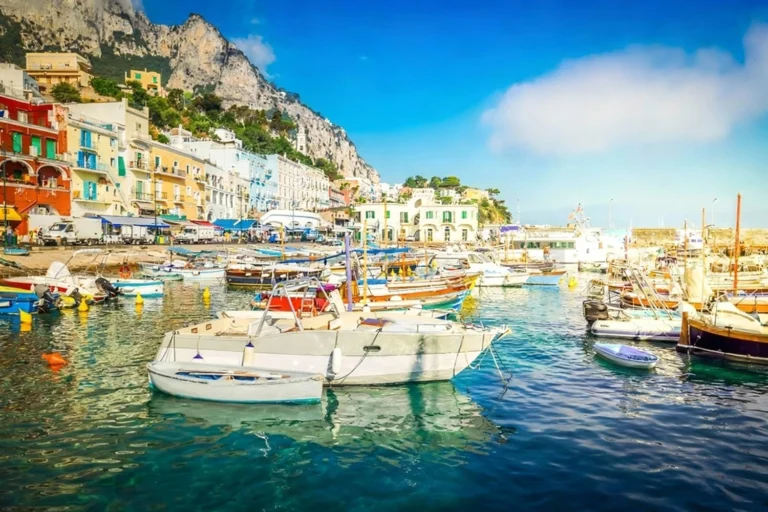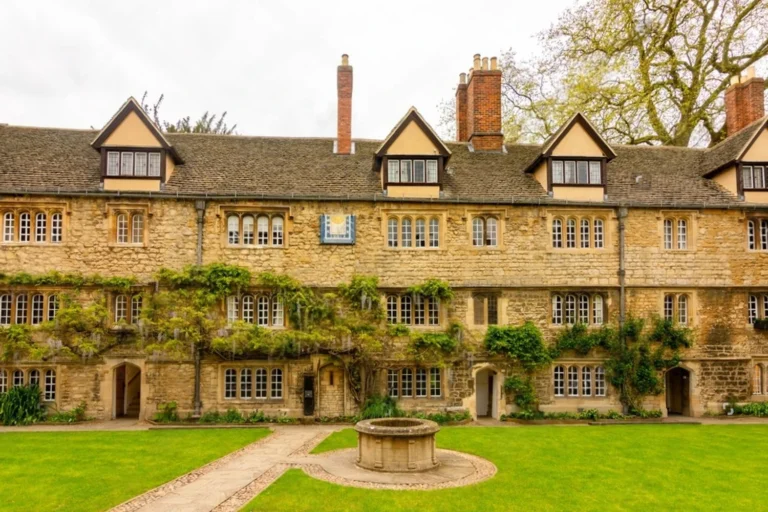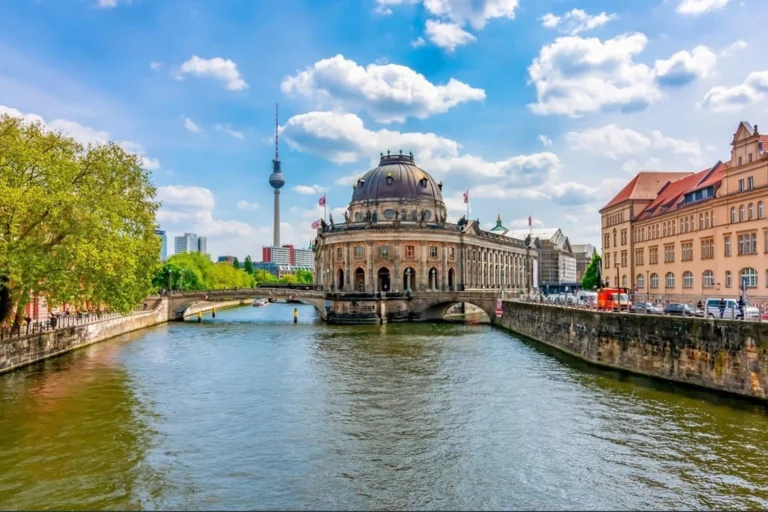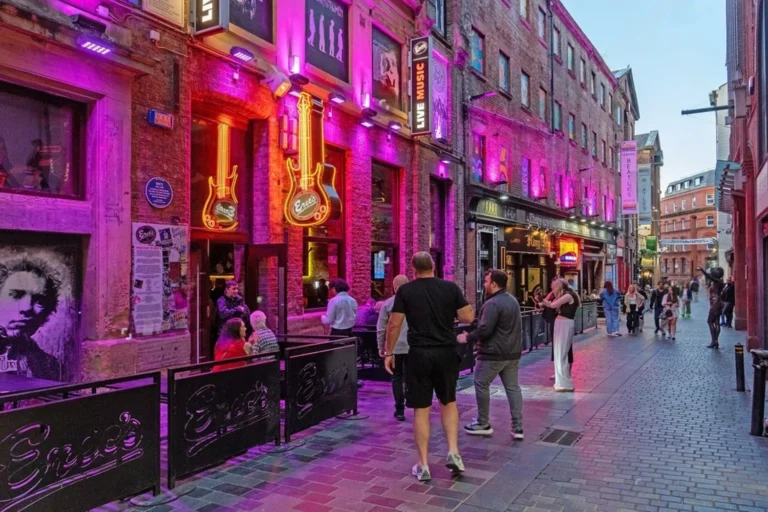Ibiza: 30 Unusual Facts Beyond the Party Island
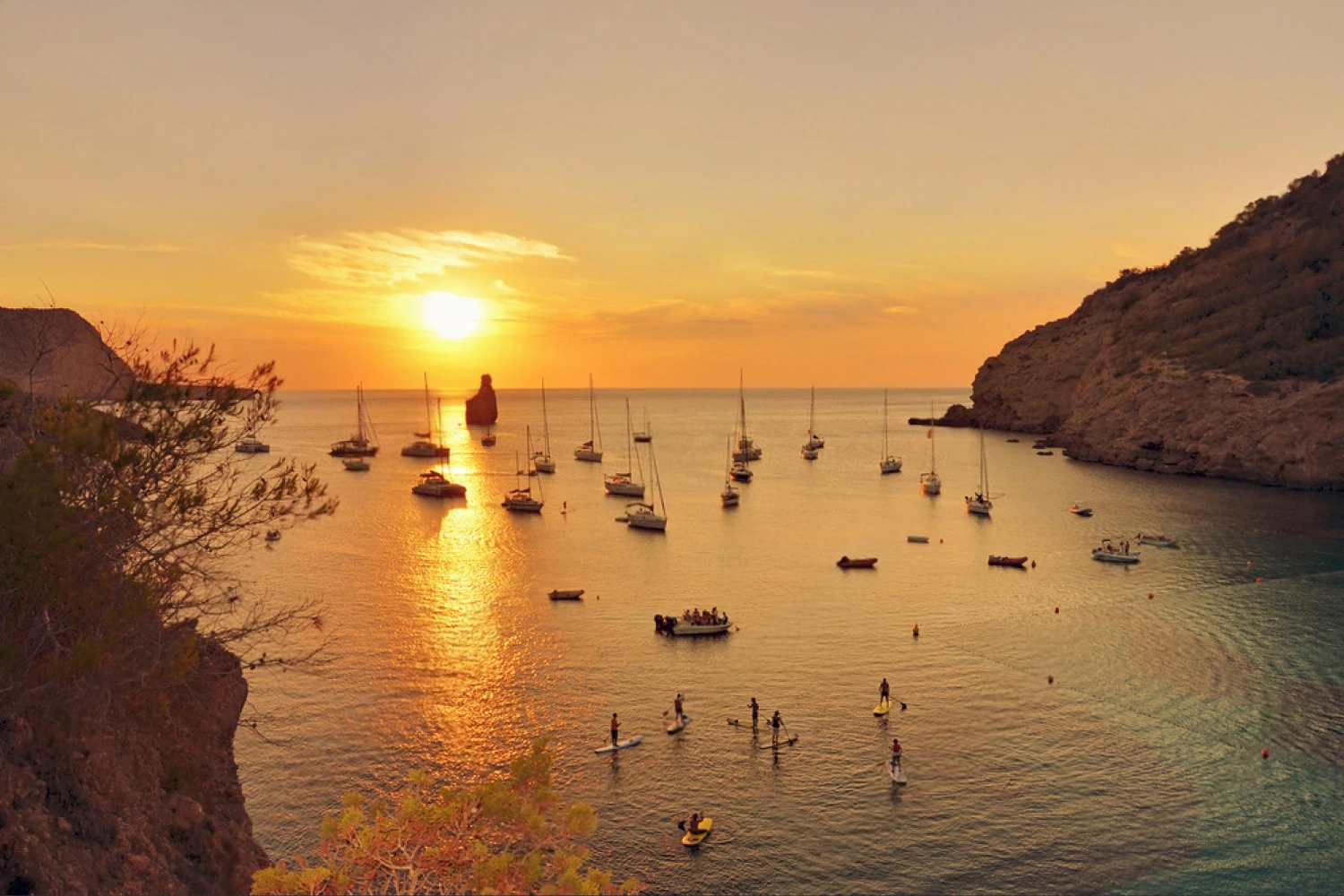
Walking slowly through Ibiza, I kept noticing the quiet, overlooked moments warm stone under my palm, the tang of salt and orange on the air, a soft clink of cups behind a beaded curtain. Each corner felt like lifting a seashell to my ear and hearing lives hum. Little gestures and sidelong glances led me down alleys I might have missed, where evening light rested on faded doorways and laughter drifted from a kitchen. Linger with me in these small, hidden stories, the details that reveal a deeper, unhurried spirit.
A magnetic monolith humming with old sea myths
I remember the first evening I saw Es Vedrà, a few hundred meters of stone lifting straight out of the sea as if the horizon had grown a shoulder. People say sailors watched their compasses lose their minds near it, and I believed them in that moment my own sense of direction felt a little unhooked. The air carried salt and warm pine, and the water below made that small, patient sound you only hear at dusk.
Locals still call it one of the planet’s magnetic places, and some whisper it’s the last visible tip of Atlantis, still humming with whatever we forgot. I wanted to laugh it off, but the longer I watched, the quieter I felt, as if the rock was tuning everything around it to one low note. The light went violet, and conversation around me sank to a murmur, like we’d all agreed not to speak too loudly near something sacred.
Maybe that’s the trick of places like this: they hand you a mystery and let you decide how much to believe. I left without proof, just a slight thrum in my ribs and the sense that the world still keeps a few secrets close. Out there, the stone stood steady, a lighthouse for old stories rather than ships, and for once that felt like enough.
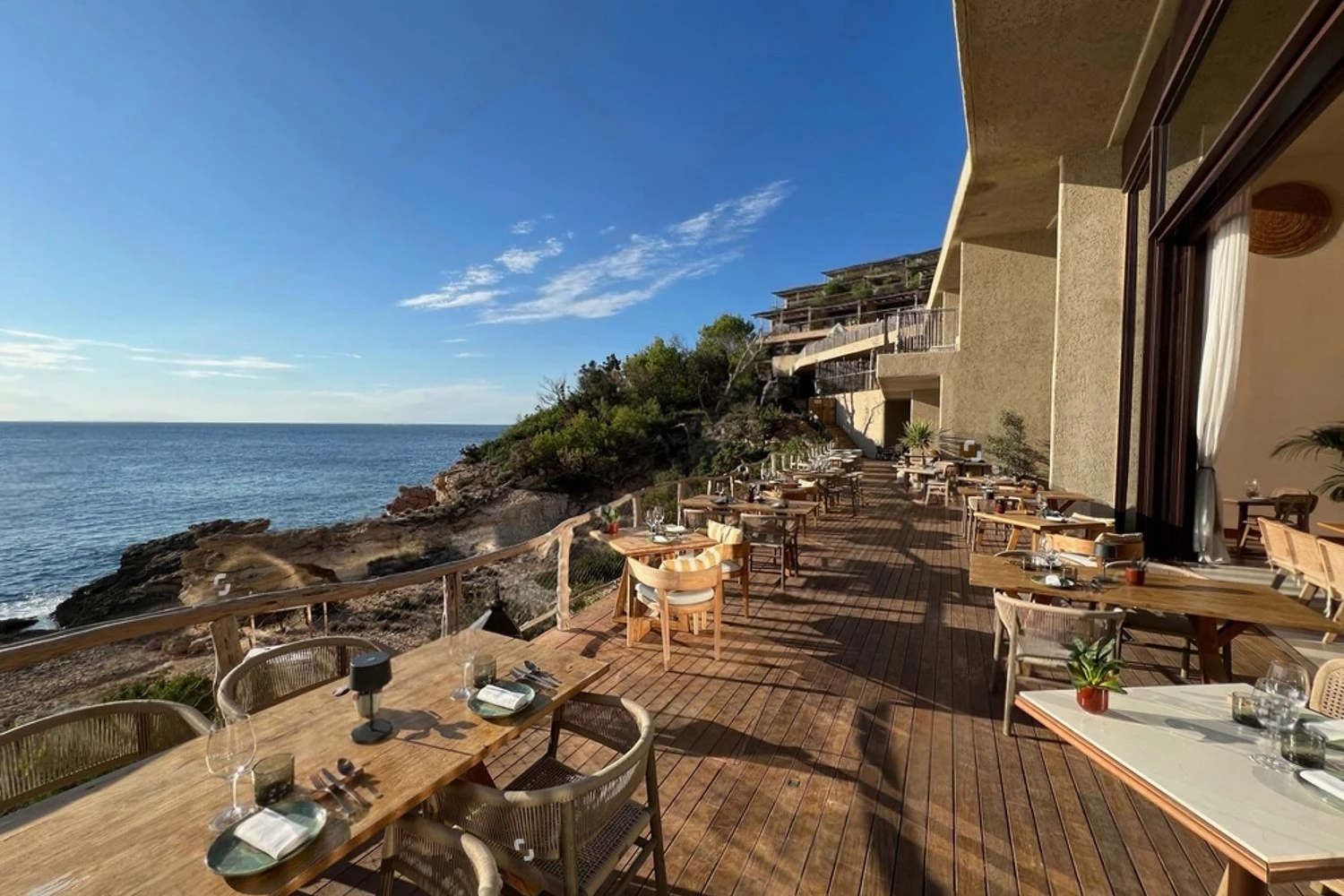
Moon offerings for Tanit in a cliffside sanctuary
On nights when the moon is round, the island seems to hold its breath. The sea smells of salt and wild thyme, and the wind runs cool along the skin. Up there, the moon hangs like a silver coin, bright enough to find the old stories again.
Tucked inside the cliffs of Cala d’Hort is a small sanctuary where people once came to Tanit, guardian of fertility, music, and moonlight. The rock holds the hush like cupped hands; you can still spot candle soot, a faded ribbon, a scatter of white petals on the dust. Locals walk there on full moon nights, leaving white flowers and soft wishes, the way their grandparents did, and theirs before them.
It makes sense, somehow, that a place famous for long nights still keeps a quiet altar to the one who blesses orchards, drumbeats, and tides. I remember standing there, not saying much, feeling the faint tremor of waves under the stone, and realizing that celebration and reverence are closer than we think.
Before DJs, pirates ruled the northern sea caves
Funny how the island’s oldest soundtrack isn’t beats at all, but wind slipping through stone, salted and low. People say those northern caves once held whispers and the clink of rum barrels; in the pauses between gusts you almost hear them.
One night up north at Can Marçà, the breeze tunneled through the cliffs and the air turned damp and cool, smelling of algae and old rope. Drops fell off the limestone into dark pools, and the wind gathered itself, quick and sly, like a cellar left open; I remember a quiet prickle at the neck that made me listen harder.
That’s what I love about this island: it holds both things at once bright nights above, older stories underfoot. The legend doesn’t frighten; it steadies you, a reminder that the music here started long before anyone ever spun a record.
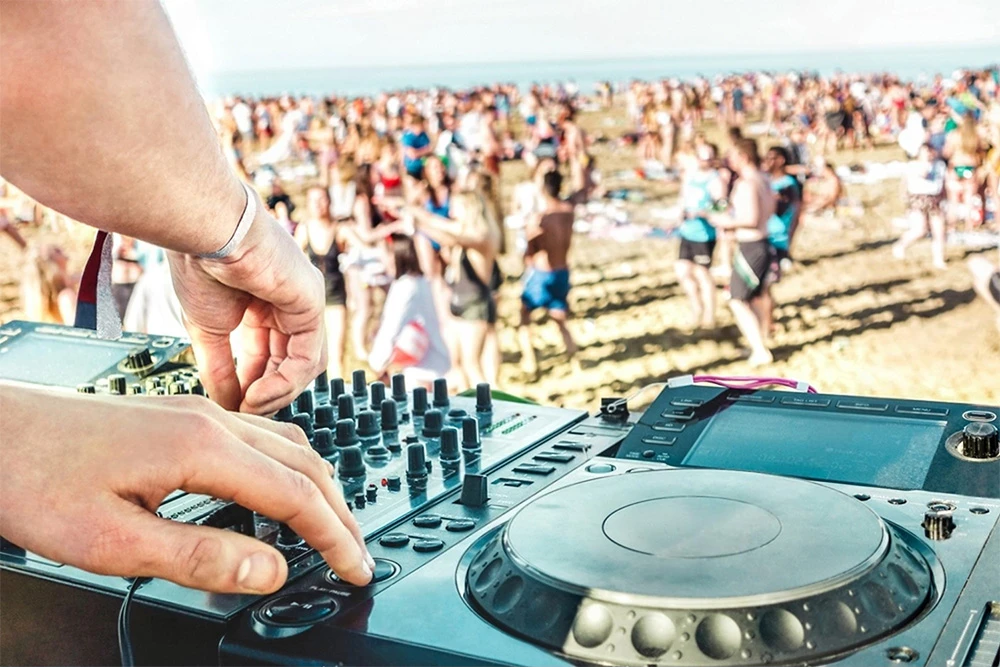
Terra roja, the island’s soil of blessings
That red earth gets to you. It dusts your ankles and smolders at noon, catching you off guard in Ibiza. Under the sun it flares almost unreal, as if lit from within; even the breeze carries a faint metallic tang, like rain meeting warm stone. I remember looking down at my shoes, stained the color of rusted pomegranates, and feeling strangely alert.
The Phoenicians once believed this iron rich ground lent a special energy to plants and to people, and I can see why. There’s a steadiness to it you notice by the vineyards and olive groves, a clarity that lingers after a walk. Locals still call it terra roja, soil of blessings, and the name feels right simple, generous, and somehow carried home in the red dust on your ankles.
Sundays when drums lower the sun into silence
I didn’t expect a protest to feel this tender. What began in the 1960s as a spontaneous plea for peace has grown into a Sunday ritual where hundreds drift to the sand, not so much to make music as to share meaning. As the light softens, the drums gather like a second tide wood warm from the day, skins buzzing, salt hanging in the air, faces loosened by the hour. I remember thinking how gentle it felt, more spirit than song.
As the sun slides toward the water, the pace thins and everything seems to settle. The last edge of light turns to an ember breathing out, and all at once hands rise to the sea, quiet and steady. In that shared stillness, I felt how hope can last across decades no speeches, no stage, just people together. At Benirràs Beach in Ibiza, what stayed with me most was the silence that followed.
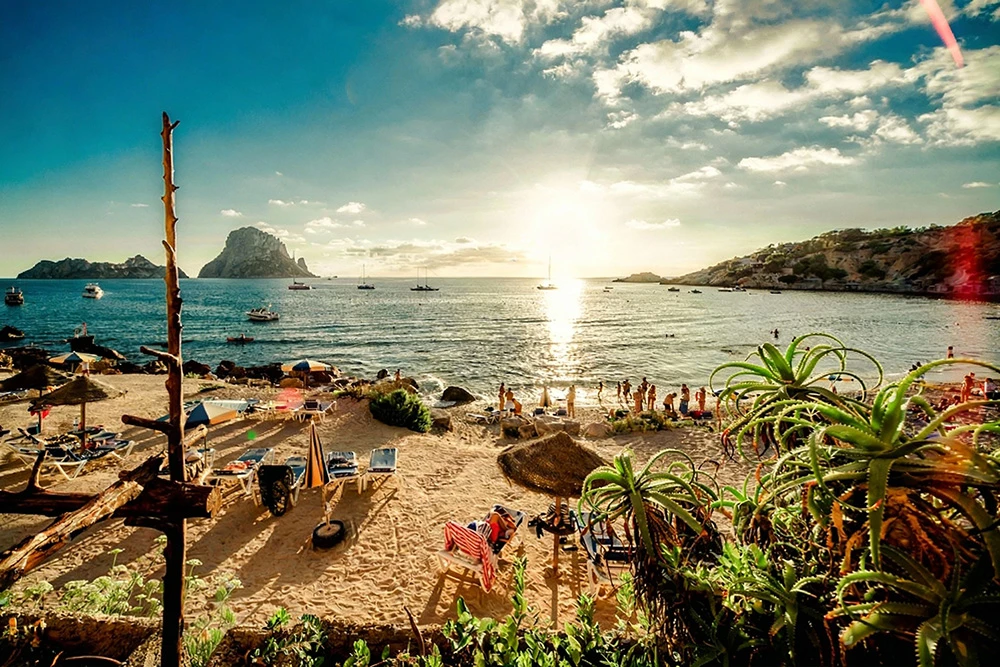
Little green messengers of luck, carrying whispers of change
I swear the first time one skittered across my sandals, the air shifted, like someone cracked open a secret door. The stones were warm from the noon sun, cicadas humming, and that quick ribbon of green felt less like an animal and more like a note being delivered. In Ibiza, people say lizards are messengers of transformation and luck; if one crosses your path, a wish is already on its way.
After that, I started noticing them everywhere on silver pendants, inked softly on sun browned arms, brushed onto shop walls above baskets and straw hats. People treat them like little protectors, and it makes sense: a creature that molts and returns to the heat suits a place that believes in fresh starts and quiet luck. I keep a small wish ready whenever I catch that emerald flicker, then breathe the salt air and trust the old story.
https://en.wikipedia.org/wiki/Ibiza
Where a laughing god still keeps watch
There’s a hush to that sun baked little cove. At Sa Caleta, the crumbling grid of a Phoenician settlement raised in 654 BC rests above the water, and the air smells of warm clay and salt. They called the island Iboshim, after Bes, the small, fierce god of good things and a guard against evil. I remember thinking how simple that felt: a name, a charm, a promise.
What gets me is how his spirit still flickers through ordinary nights: in a brass amulet on a market stall, in cheap party charms, in the way strangers burst into loud, loose laughter and somehow feel safe. Maybe that’s why the revelry softens at the edges, why even bold joy seems looked after, like a steady hand on your shoulder. Protection here doesn’t weigh you down; it glows quietly, a lighthouse you can carry in your pocket.
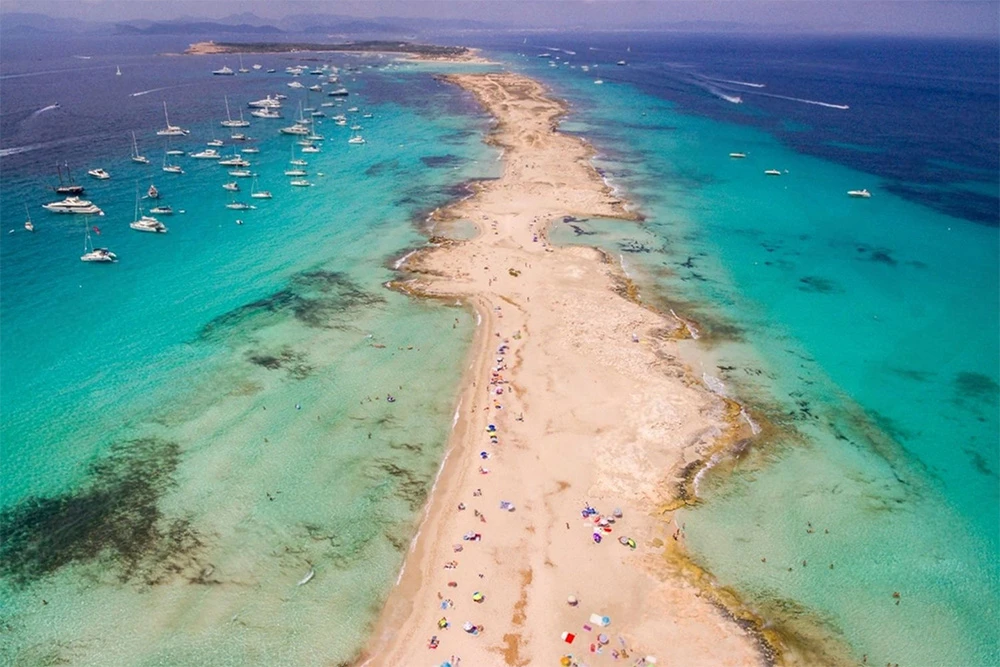
A fortress where dawn still wakes the past
The first bell comes thin and bright, and more follow, as if someone is gently tapping the lid of history. Up on Ibiza Town’s Dalt Vila, those UNESCO protected walls carry the sound cleanly over the roofs, letting it float back like a quiet tide. The morning air has a trace of salt, and the stones seem to hold it like a kept secret.
What gets me is what lies beneath those cobbles: tunnels where people once stored weapons and salt, defense and daily bread sharing the same dark. Knowing that makes the place feel intimate in an unexpected way, like seeing the knots that hold its days together. It’s a reminder that beauty and survival often travel side by side.
Then night arrives and everything narrows to whispers and candlelight. Shadows lean along the walls, and the air turns hushed; I remember lowering my voice without meaning to. In that gentle glow, the noise falls away until it’s just footsteps, the smell of salt, and old stone keeping watch.
Stone pillars keeping quiet time with the sun
I didn’t expect stone to feel so gentle, but those pillars seem to breathe with the sea. Hidden between cliffs, “Time and Space” rises in eleven basalt columns, Ibiza’s quiet nod to Stonehenge. Each stands in careful alignment with the sun’s path, a kind of cosmic compass; afternoon light runs down their faces, honey gold, while the wind moves in soft, salt edged sighs.
I remember the hush as evening gathered and people naturally fell into slower thoughts. Locals come to meditate or to ask a forever here at sunset, because something about that alignment makes ordinary minutes feel larger. In a place so rarely stumbled upon by tourists, the columns keep watch over promises and stillness – a sundial for the heart, reminding you that time, when listened to, can be tender.
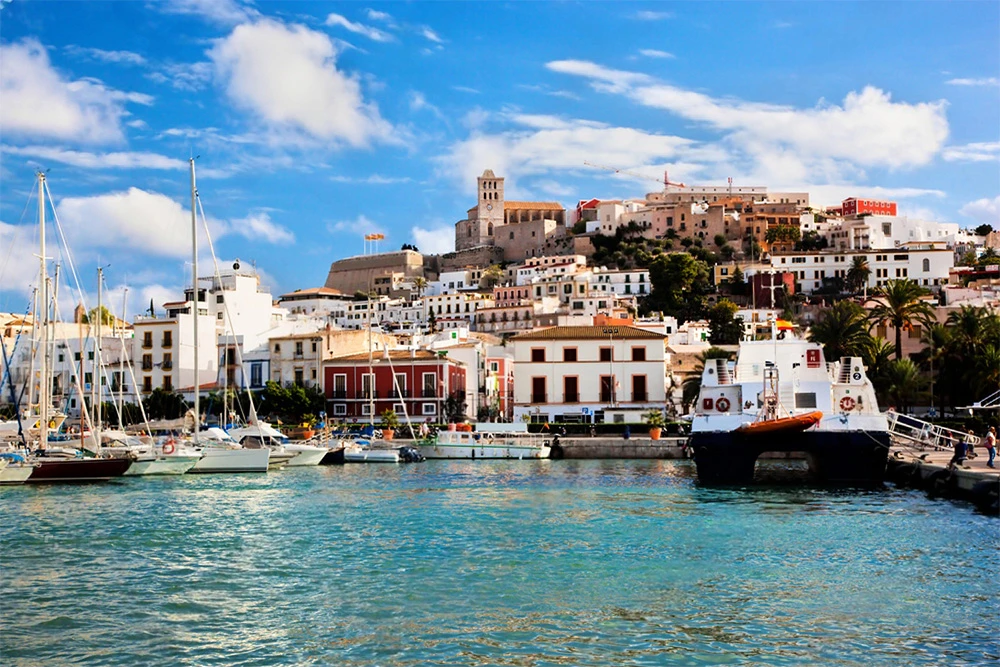
The pink salt flats that keep time
I didn’t expect silence to sparkle like that. Late afternoon light leans low and the shallow pools blush, the air tasting faintly of brine. Wind skims the surface and the world seems to split into sky and its twin below, until the flats look like a sheet of rose glass at Ses Salines.
They’ve been glimmering like this for more than two thousand years, when salt was traded like gold and carried across empires. I remember thinking how something as ordinary as a pinch of salt can shape the fate of ships and kitchens alike how value changes, but wonder doesn’t. Locals say the afternoon sparkle is the island’s heartbeat; standing there, I felt it too steady and bright, a quiet rhythm that makes even time taste a little salt sweet.
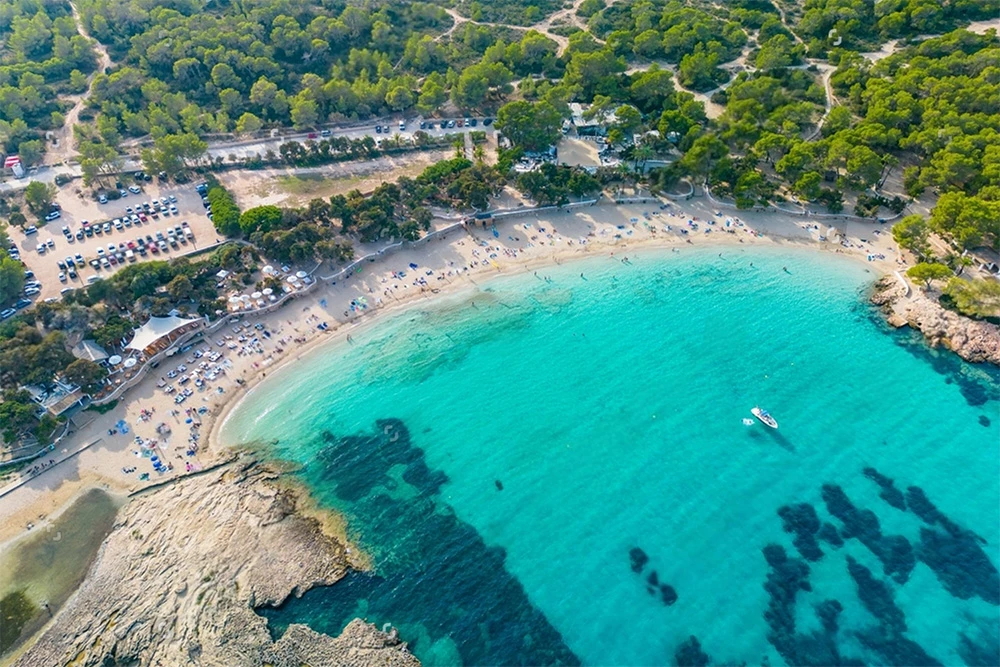
The Balearics’ oldest living olive tree endures
I thought I’d come for beaches, and instead I found a deep quiet around a tree. Out in the red earth countryside of Ibiza, the oldest olive I’ve ever seen stands with silver leaves that flicker and cast cool patches on the soil. Its trunk is twisted and wide, a thousand years of weather worn into ridges and hollows an old sage with bark like a map of storms and summers. The air smells of resin and warm dust, and somewhere nearby a goat bell clinks.
Farmers say they talk to it like an old friend, and each year they leave a single drop of olive oil at its roots a small blessing for good harvests. I love the humility of that ritual: nothing grand, just a soft thank you to time. Standing there, it felt steady and patient, a reminder that plenty grows from care and that some friendships outlast empires.

Sun soaked freedom meets a surprisingly strict dress code reminder
Funny how the air can smell like sunscreen and neon at the same time. I remember thinking the night could forgive anything, salt still drying on my shoulders, bass rolling through the alleys like a soft tide. Then someone joked about a “shirt tax,” and freedom suddenly felt a little more defined.
Here’s the gentle truth: Spanish decency rules say beachwear belongs on the beach. Step off the sand and you’re meant to cover up; wander shirtless through town and that breezy bravado can turn into a €300 reminder. In Ibiza, plenty of wide eyed newcomers learn it the hard way, surprised that the world’s party island carries a small line of decorum through its sunlit streets.
I kind of love that balance. The beach is the dance floor; the town is the living room, where families shop and neighbors chat and the day catches its breath. It doesn’t dull the magic it just asks us to share it with a little grace.
A pirate tunnel breathing through a chapel floor
I love how places confess in whispers. Once, in the hush of afternoon, a cool draft brushed my ankles salt threaded through candle wax and old stone and someone nearby murmured that the church was exhaling the sea. Inside the parish church of San Miguel, you feel it: a breath rising from the floorboards as if the ground itself remembers.
Locals swear there’s a hidden tunnel beneath the altar, a sly passage that once ferried contraband through turbulent years. They tell the story with a grin and a shrug, the kind of secret they share over coffee but never mark on any map. I remember thinking how perfectly it fits the town’s spirit, that tender overlap where hymns meet smuggler’s lore and the sacred makes room for the unruly.
Every so often that salty breeze lifts again, and the chapel seems to breathe like a shell pressed to your ear. It turns history into something tactile cool air on skin, a taste of brine on the tongue so much more alive than plaques and dates. Maybe that uncharted tunnel is just a ribbon of shadow that once ran to the surf, but to me it’s the feeling that certain truths prefer to travel by rumor, traveling lighter than any prayer book ever could.

Whitewashed chapels with quiet, defiant island secrets
I remember stepping into the shade of a tiny chapel, the wall still lime cool against my shoulder, bees fussing in the rosemary and the air tasting faintly of candle wax and salt. At first it looks so gentle white against the blue but then your eyes adjust and there they are: the walls thick as held breath, and those thin slots cut toward the water, not windows at all but old lines of defense. The church wears a quiet kind of armor, and it makes you smile at its soft bravery.
In the 1700s, when pirate sails pricked the horizon, families would climb into the bell towers and fall silent, bells stilled, prayers folded into the stone. These chapels were small fortresses because they had to be, and somehow that makes them even more tender the way a place of refuge can also stand guard. I thought of Ibiza then, how its joy is honest but never naive, like an island that learned to laugh with one eye on the sea, which felt for a moment like a bright stage where danger once played and finally left.
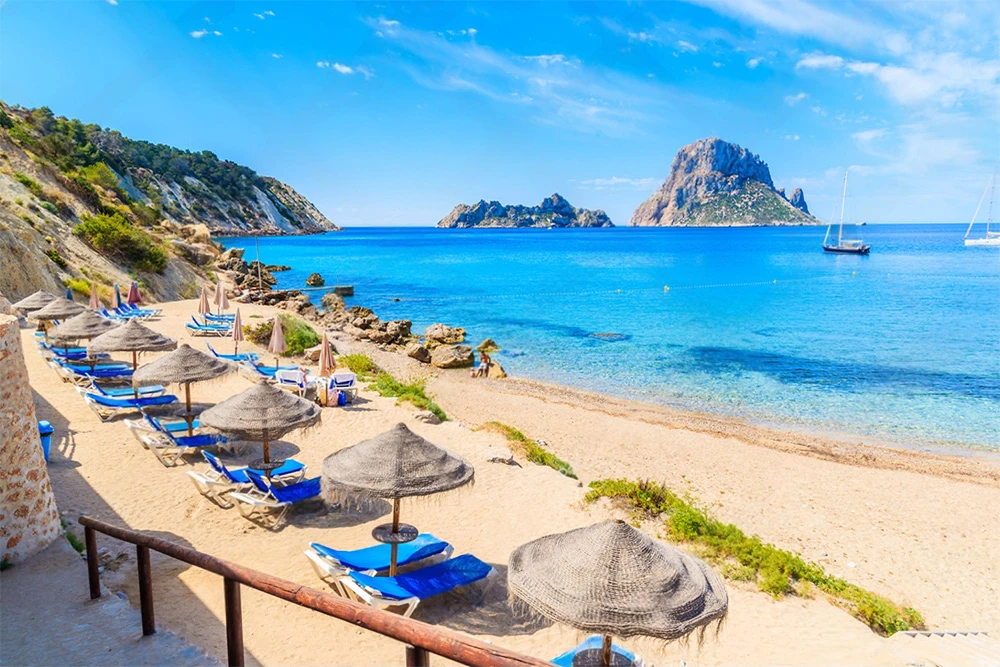
Houses that grow like families, one room at a time
I remember pressing my palm to a white wall at noon; it was cool as a river stone. The old farmhouses casas payesas stand in quiet cubes, thick and bright, keeping heat and hurry at bay. You can feel how time settled here: not all at once, but in patient steps, a doorway added when the family grew, another room when seasons changed, until the home became a gentle spread of simple spaces.
In Ibiza’s countryside, each house carries a name, spoken softly by neighbors at dusk, said like an old friend’s nickname. I love that architecture with memory, built piece by piece across generations, so walls don’t just hold shade; they hold family laughter, the clean scent of lime, and the steady comfort of staying. It made me think the villages aren’t just places on a map; if you linger a minute, you notice it in the creak of a wooden door and rosemary drifting on warm air.
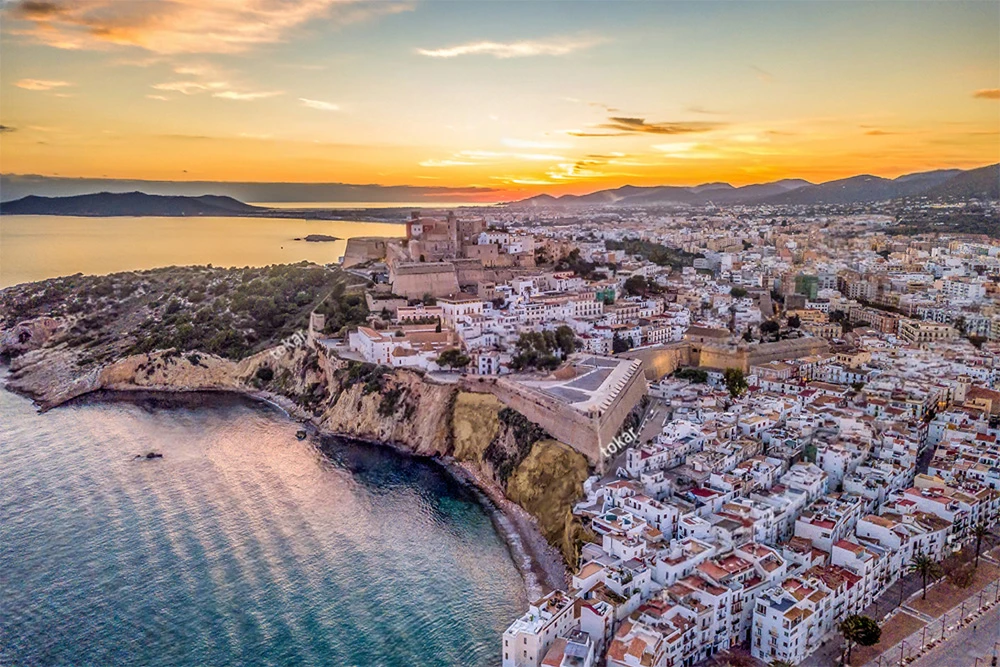
Sunday market, more ritual than attraction
I swear the air shifts on Sundays warmer with basil and sugar. In San Juan, the market hums like a well loved hymn. Handmade jewelry glints beside bundles of herbs and folded vintage linen, with easy laughter drifting through.
Local grandmothers still sell pastries from recipes older than memory; paper bags turn warm and translucent in your hands. I remember a bite dusting my lip with sugar and anise, and realizing I was tasting someone’s childhood. It felt like opening a family album that still smells of sunshine.
What surprised me most was how unperformed it is no spectacle, just people doing what they’ve always done. It isn’t an attraction here; it’s a weekly ritual, and you can feel time slow without anyone trying to hold it still. I walked away with crumbs on my shirt and that soft, steady feeling that some places keep their soul simply by sharing it.
Clap once, and the cove answers in heartbeats
The first clap startled me; the rocks answered, soft and steady, two little thuds I felt in my chest, like a shy drum hidden in the cliff. Sea salt hung in the air, the water so clear it quieted everything. At Caló des Moro in Ibiza, locals call it the talking cove, and in that moment the name felt obvious.
A scientist could diagram the angles and say acoustics; maybe that’s true. What I felt was gentler: the echo met me halfway and set my breathing to an easy pace. I remember how the day pared itself down to simple things – the hush between claps, gulls threading the sky, and the sweet feeling that the world was, for once, listening back.
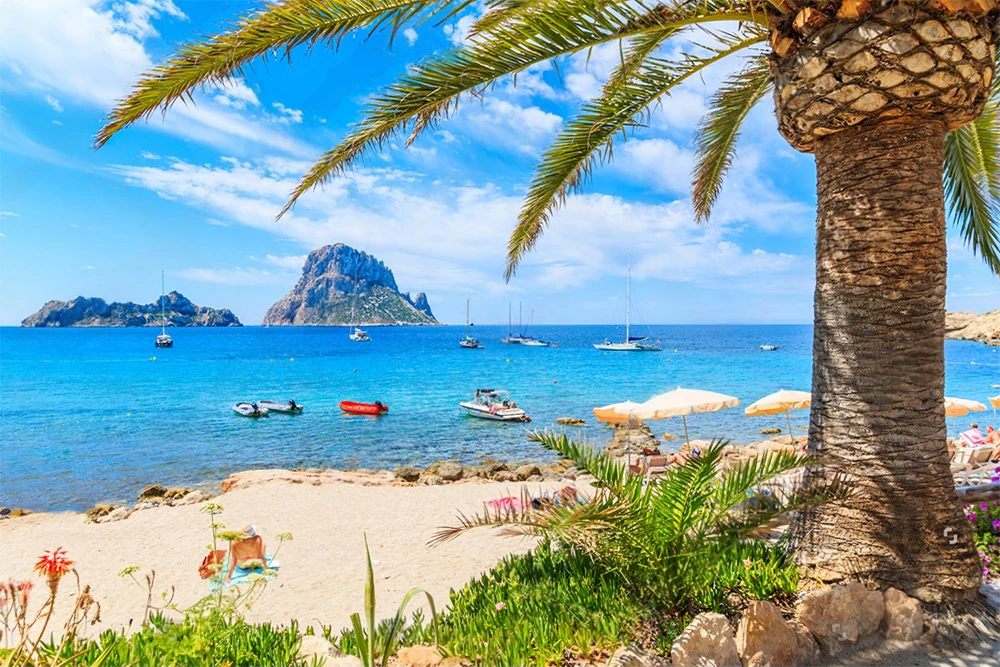
Ibiza’s August heartbeat, far beyond the neon.
I didn’t expect August here to feel like a family reunion. The old hilltop walls glow, and Festes de la Terra spills into the lanes with rolling drums, bright skirts, and sandaled steps skimming warm stone. The air is sweet with caramelized almonds and a lick of sea salt, and fire dancers draw orange trails across the night while folk songs rise like a kind of collective memory.
What moved me most was how gently the island insists on remembering saints and farmers, hands that tilled, voices that prayed right beneath the dance floors and spotlights. I remember thinking it wasn’t a show so much as a steady heartbeat under the sequins, a soft promise that joy can be old and new at once. It made me feel grounded too, like maybe we all dance better when our roots are deep.
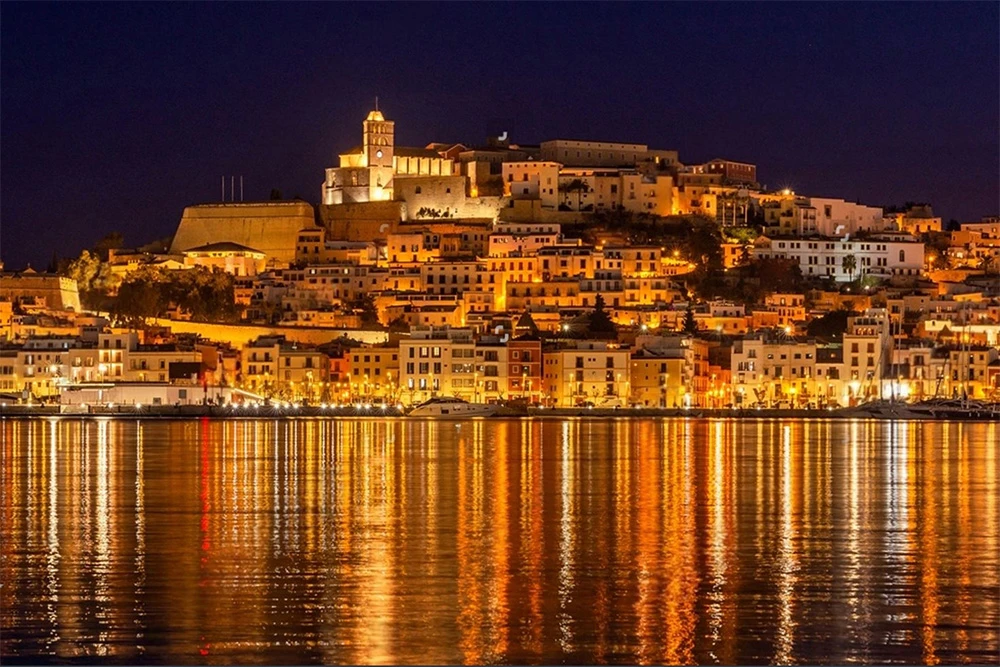
A green dawn blessing at a hidden well
There’s a hush you only meet at first light. Under the fig trees the air smells of sap and damp earth, and the water in the old stone mouth glows green, like a coin of light dropped into the dark. For a moment, the world pauses.
People say a blessing rides in that first sip when summer begins. What makes me smile is how the skeptical ones still drift in quiet as dew with a bottle every June; the mechanic with oil on his cuffs, the math teacher with her cardigan, all pretending it’s just water. In San Mateo, doubt and hope share a cup, and the clink of glass under figs makes the morning feel gentler.
I remember tasting it once, cool as shade and a little mineral sweet, and feeling a small lift I couldn’t argue with. Maybe it’s the color, maybe the ritual, but it sent me into the season with steadier steps and a grin I didn’t have to explain. The glow stays in my mind long after proof that some places hold quiet promises, whether or not we believe in them.
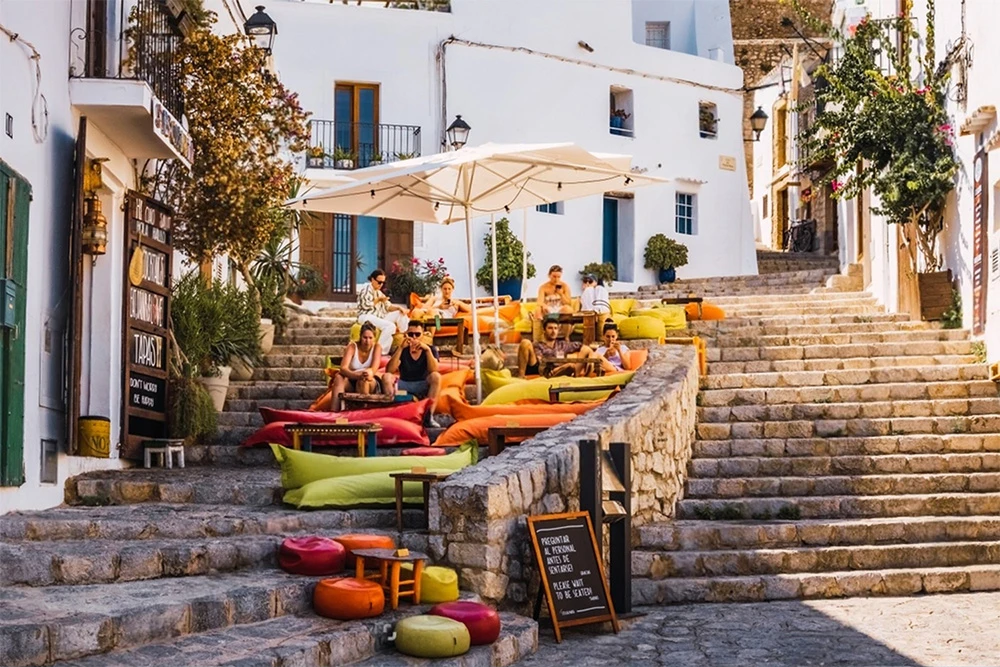
Where rivers vanish into the island’s bones
I remember a sudden downpour leaving the thyme scented fields slick and shining, the cicadas briefly hushed. No streams appeared; the water slipped straight into the limestone, gathering in secret rooms, a whispering house beneath our feet. It felt strange and a little magical, as if the island preferred to drink rather than display its water.
Old stone wells still sit in the fields, quiet as milestones, where farmers once lowered buckets into cool darkness to find those hidden lakes. After heavy rain, people still swear the sea murmurs through the channels, a soft salt breath traveling the old veins of rock. On Ibiza, it somehow makes sense that the water chooses the hidden path joy above ground, and underneath, an ancient quiet that steadies everything.
Hippie echoes on fishermen’s walls in New Town
I love how old plaster can keep a secret. In the island’s New Town, the sun has bleached the fishermen’s walls to a tired white, but under the peeling paint you still catch shy fragments half a peace sign, a line of a love poem, the kind that once made someone brave. They were painted in a hurry, born of that 1970s hippy tide, and even now the salt air can’t quite erase them. Sometimes a flake lifts and the color breathes again, like wildflowers that found the cracks and never left.
What gets me is the tenderness of it all. This working place, once loud with nets and gulls, quietly carries an old promise: that joy and kindness are worth writing on a wall. I remember thinking the murals felt more like a memory than a message, a soft archive of hope. It’s as if the island refuses to forget its idealism, holding it close the way people keep a lucky stone in their pocket worn smooth, but still warm.
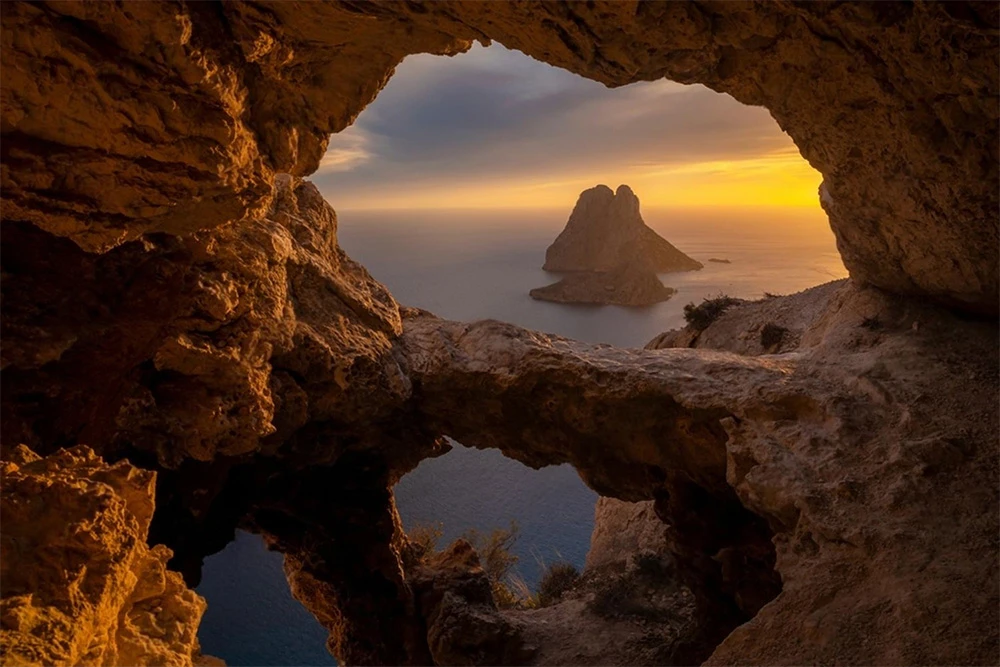
Ibiza once banned swimming under the moonlight
I remember someone whispering that night swims were illegal here, and I laughed until I learned the official line was safety and the whispered reason was that the old hippy rituals got too wild. The air after midnight tastes of warm salt and figs, and sometimes you catch a low thud of drums from a far cove. In that blue black hour, the shoreline holds its breath, and the sea turns into a dark radio picking up old songs.
These days, no one really enforces it; mostly it lingers on the books. Still, after midnight the air prickles, voices dip, and strangers turn gentle in the dark. I think that’s what I love here: even the strangest law nods to a delicate balance, trying to keep people safe while leaving room for wonder.
Ancient flutes hiding inside the Balearic beat
Sometimes a bassline carries a whisper you can’t place. I remember a hazy night when the drop curled like a wooden flute in the dark, thin and bright above the drums. Someone told me that back in the 80s, the first rave DJs borrowed local flute scales for the Balearic sound, and suddenly every anthem felt older than the lights.
That’s the quiet magic: today’s club choruses still hum with those ancient intervals a coded link between past and pulse, like a tide moving under neon. On Ibiza you hear it in the salt air between beats, a melody that doesn’t chase the night so much as anchor it, reminding you this party grew from centuries of song.
It made me softer on the dancefloor, knowing the hook wasn’t just engineered for the drop but inherited, passed hand to hand like a shell from the shore. Once you catch that trace of reed and wind, you start listening for elders in the mix and the whole night feels wider, generous, as if time itself kept the rhythm.
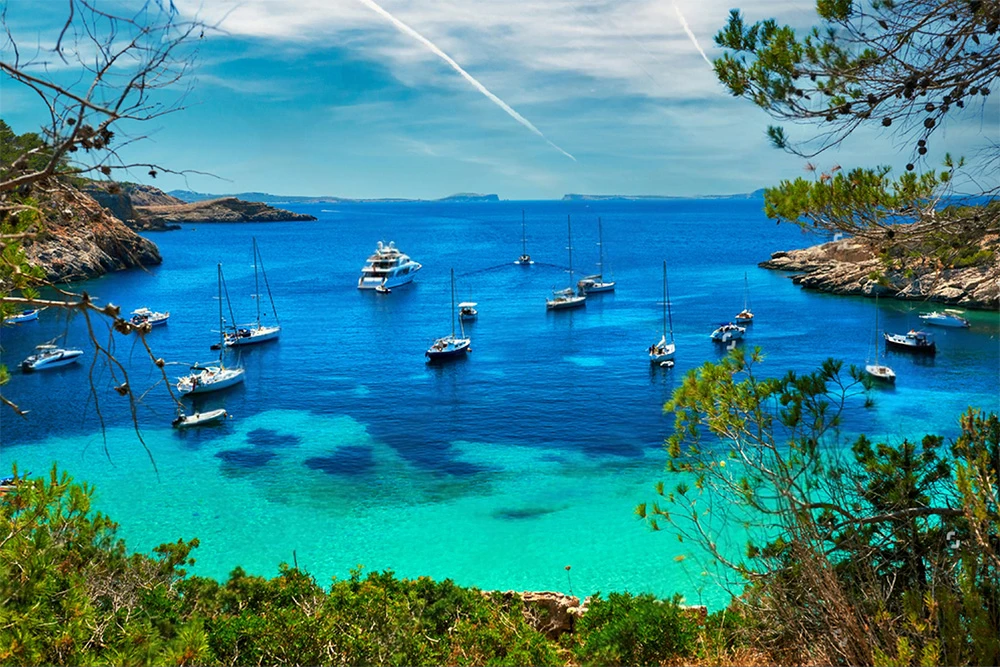
Full moon candles for Tanit still flicker on the cliffs
Some nights the moon rounds into a silver coin and pinpricks of fire dot the headlands. People still leave candles for Tanit especially women asking for strength or the courage to begin again and the air carries warm wax, salt, and crushed thyme. I remember the wind dropping to a hush, the kind that makes you stand still without knowing why.
By daylight, hikers find the traces: wax dripped stones, wilted flowers tucked into limestone cuts, a ribbon looped around a sun browned shrub. It’s quiet proof that belief doesn’t vanish; it just changes its clothes. On Ibiza, that old goddess isn’t a museum relic she still feels near to anyone standing at a cliff edge and choosing the next version of themselves.
Faded peace signs in the salt wind light
The afternoon was all hush and salt on the tongue, and there, half buried beneath the dunes near the old salt fields, a circle with three lines eased out of the sand. Old graffiti from the seventies, almost gone, still catching the slant of light. I remember feeling a small tug in my chest, the kind you get when something nearly lost turns its face back toward you.
They were painted by anonymous dreamers, fragments of the island’s lost Summer of Love in Ibiza. The colors have faded to the softest hush, but the mood lingers reckless kindness, open doors, music you can almost hear at the edge of the wind. It feels like a postcard the island mailed to its future, trusting we’d read between the lines.
What surprised me most was how gentle it felt, not nostalgic so much as grateful. In that quiet glow was a simple promise: even when the party fades, the hope that started it can stay. The peace signs didn’t shout; they breathed.
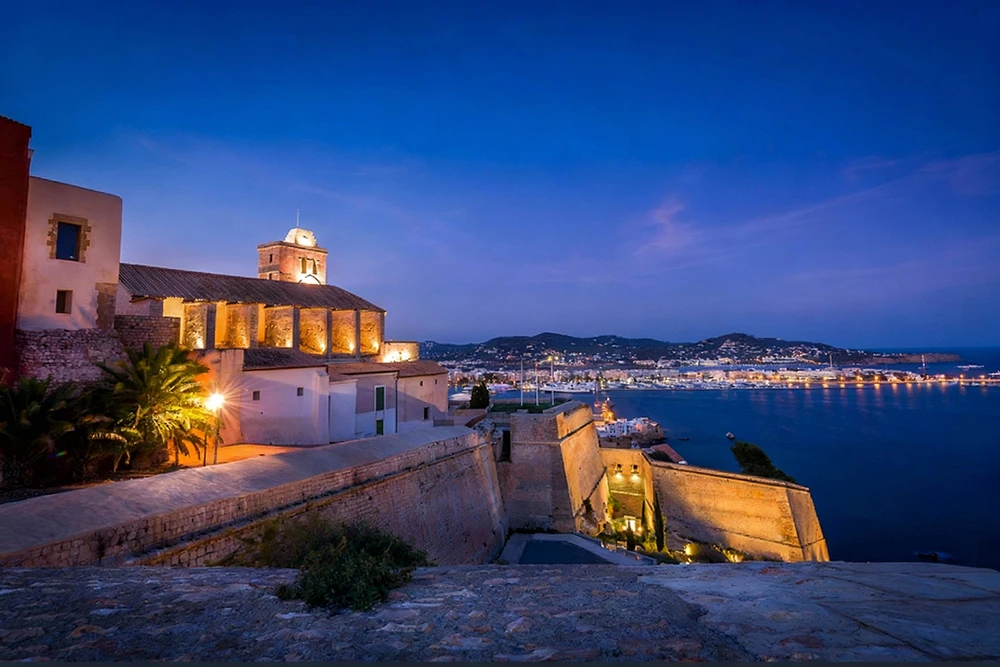
Where old wells remember how to dance
It’s funny how stone can hold a rhythm. Out in Ibiza’s countryside, the old wells sit low and sunburned, their rims rough with lichen and time. I remember a late afternoon when the air smelled of thyme and fig leaves, and an elder touched the stone like greeting an old friend; back then, he said, people met here to dance, to bless the season, to nudge two shy hearts a little closer.
Now the walls are chipped and the buckets long gone, but when the fiestas return each year, the ground starts to thrum hand drums, clapping, voices rising and falling and the well seems to hum along, as if water were still rising. It always surprises me that a place built for thirst can become a village’s heartbeat, a gentle proof that celebration has a way of returning to the simplest corners.
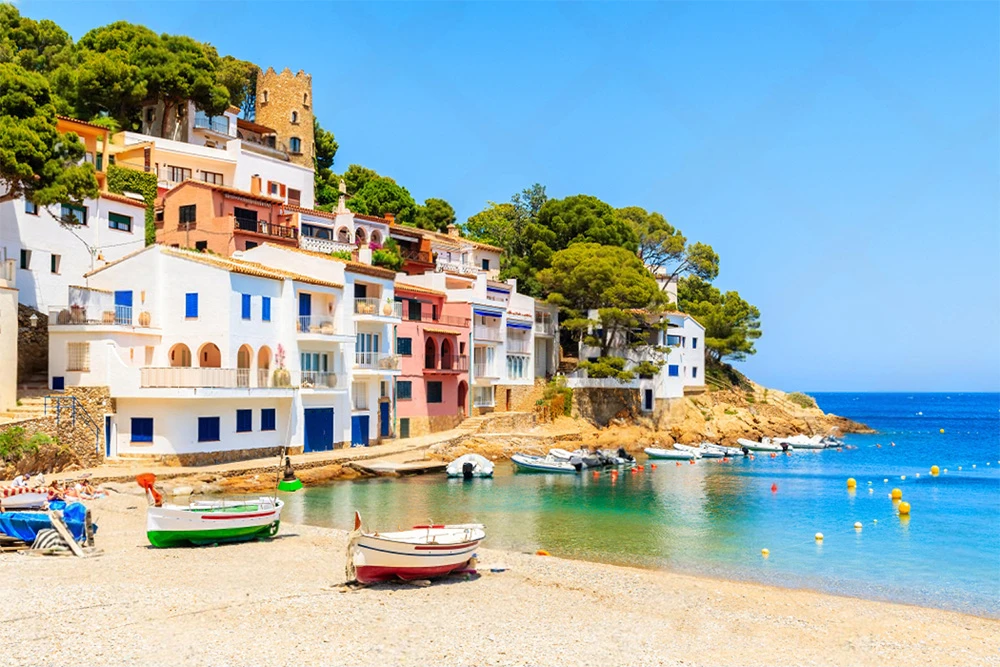
Prehistoric paintings sleeping in a guarded island cave
I remember the hush that makes you hold your breath, the cool damp air carrying the mineral smell of stone and salt. On the rock, red oxen and patient spirals still hold fast, their color clinging to the damp like a memory that refuses to let go. You don’t look at them so much as you feel them settle in your chest.
What caught me wasn’t just the time more than three millennia but the softness of it all: warm pigment resting in the dark, like embers banked against the centuries. To think there are only a few places in Europe where this still survives, and one of them is in the Ses Fontanelles caves on Mallorca, makes the world feel older and somehow kinder. I felt small in the best way, as if time had folded a chair and invited me to sit.
Locals rarely speak about it, and I understand why. Some mysteries shrink under bright attention; some places ask for a whisper instead of a shout. There’s a kind of care in that quiet an island instinct that what endures does so because we let it, keeping a little distance, leaving the dark to do its gentle, watchful work.
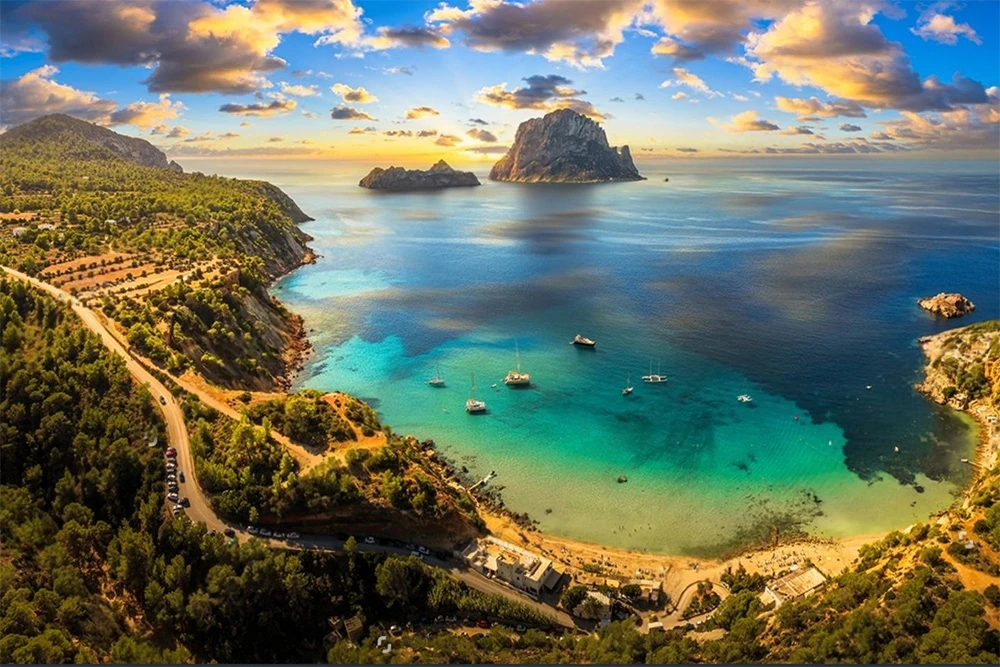
Nights when the sea glows like fallen stars
I remember the first time the water seemed to answer; my fingers skimmed the surface and it fizzed alive, tiny sparks racing the curve of a wave. Around Cala Xarraca the air smelled of salt and pine resin, and the shore fell quiet as if listening. In the moonless dark it felt like someone had shaken a snow globe of light and poured it into the bay.
You wade in and every kick leaves a pale trail, your body sketching brief lines that vanish as fast as laughter. It’s such a humble kind of wonder – small creatures making big magic – and it makes you feel tender toward the world. When the sea glows like that, you don’t need much to feel lucky; just a night without a moon, a friend beside you, and the soft surprise of leaving light behind.
Before beats, the island already had a heartbeat
Sometimes sunset feels like someone slowly turning up a dimmer, and you realize the whole day has been keeping time. The air smells of salt and wild rosemary, and the light jumps off the Mediterranean like small, bright thoughts. I remember sitting above a hidden cove, hearing only gulls and the soft wash of water, and still there was rhythm – steady, quiet, sure.
Every story I’ve heard – old rituals, seaside legends, little chapels peeled by the sun – seems to land on that same pulse: freedom, a kind of stubborn faith, and light that won’t stop returning. In Ibiza, even the hush between waves beats like a drum under the skin. When night finally goes loud, it feels less like a beginning and more like the last verse of a song that started long before the speakers.
That’s why people keep coming back, I think. Not just for the parties, but for the unseen magic that hums beneath every sunset, the part that reminds you you’re allowed to loosen your grip and believe in something gentle. Once, walking home as the sky went violet, I felt it rise with the first star – not a spectacle, just a quiet yes, and it was enough.
Could you share the travel fact you’d like me to expand into a short story? Just one line is enough (place + detail). For example: “Chefchaouen’s old town is painted blue,” “Singapore’s Jewel has a 40-meter indoor waterfall,” or “Kyoto’s Fushimi Inari has thousands of vermilion torii.”
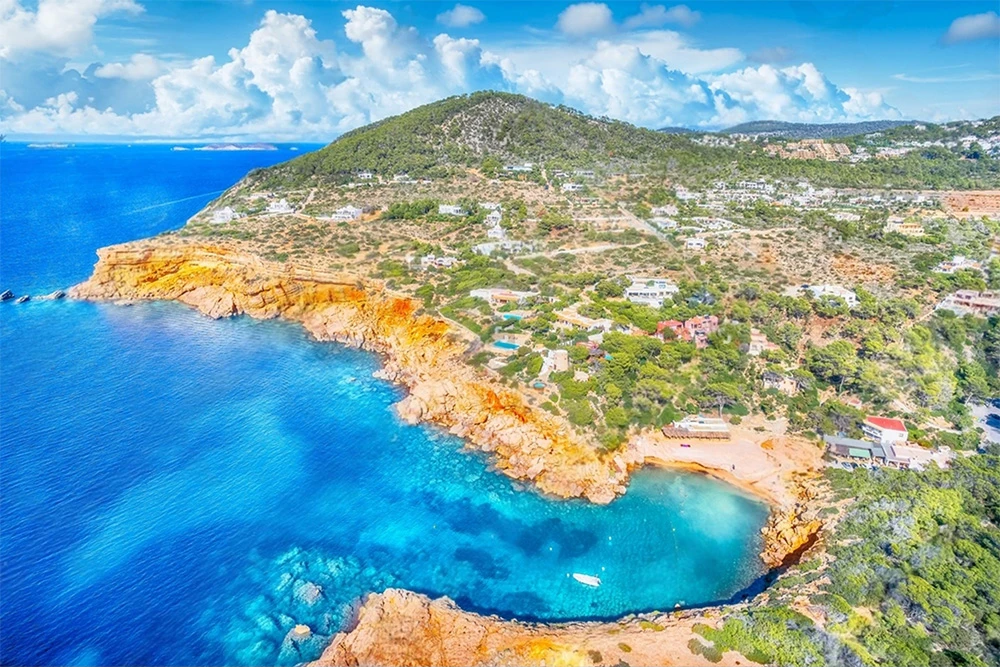
Final thought
It’s in the quiet corners the shared laughter at a market stall, scuffed doorways, and dawn blue pauses where hidden stories, small details, and human moments reveal a truer side of Ibiza. Each quirk you notice feels honest, a small proof of place. The big moments are easy to notice, but the gentle ones stay. Like a lantern cupped against the wind, these fragments keep glowing long after you’ve moved on. Walk on with quiet hope, ready to be surprised.
